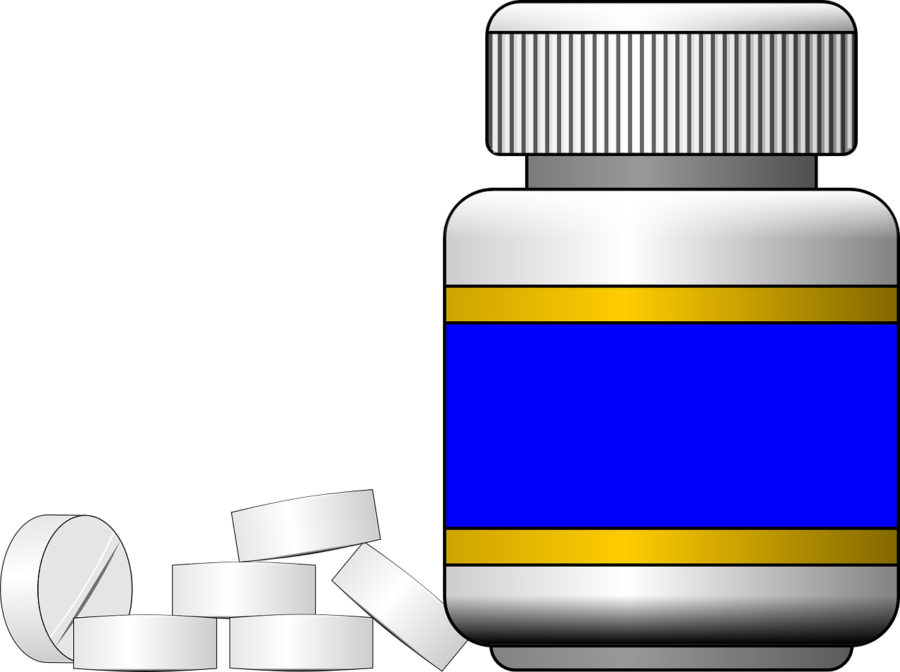
I am writing to convince you why it’s important to talk to people who are close to you about their mental health issues. If you don’t want to do it because it makes you feel uncomfortable, consider these egotistical reasons why you should:
A. If you were suffering from depression and were in denial, wouldn’t you want somebody to have the guts to tell you that you needed help?
B. Which of these two scenarios do you prefer?
1. Talking to a friend about their depression and suicidal thoughts and need to seek medical help.
2. Planning the memorial, writing and delivering the eulogy for a friend who has committed suicide.
As incredibly uncomfortable as scenario #1 is, it colossally easier than scenario #2.
Having experienced both scenarios in the past few months, I can tell you that both situations are terrible but leading somebody to improve their health is infinitely better than dealing with the aftermath of a depressed person’s suicide.
Believe me. I know.
No one wants to be the “one” person to approach a friend, colleague or family member about their depression.
It’s sucks to be the only one because you may feel like it’s a burden.
It’s uncomfortable and awkward.
It’s taboo.
It can get ugly.
But the only way we’re going to stop the growth of the mental health crisis is when more of us speak up and uncover the root causes of depression and other mental health problems.
How I learned about the mental health crisis
With fourteen years of experience of dealing with depressed and suicidal friends, I have learned to spot depression. I can say with certainty, that our mental health crisis is getting worse and at a rapid rate. Fourteen years ago, I knew about 10 people taking antidepressants and was shocked at how widespread these psychotropic medicines were. In the last 3.5 years, I lost 4 people to suicide. In the last 2 years, I’ve had to speak to several people about their depression and their suicidal thoughts. In most cases I was the only person that spoke to these friend about their depression. Nobody else either recognized that they were depressed or had the guts to say something. For me, their depression was blatantly obvious, just like the color of the hair.
I’m not a trained mental health care worker or a doctor. But I have been on the receiving end of the mental health crisis that is going on in the United States and other industrialized countries because I have counseled many depressed friends and I’ve grieved the loss of those who have taken their own lives to escape the misery of their depression. The crisis is not just about statistics I see in the news or reports of celebrities who have ended their lives. This mental health epidemic stares at me all the time in the faces of many friends, colleagues and family members. The crisis is tragic and bound to get worse unless more people become aware of how to recognize depression and help people find resources to treat their mental health issues.
This blog post is to inform the public about:
- causes of depression (medical, nutritional and societal)
- shortage of mental health providers
- signs of depression and suicidal thoughts
- talking to friends about their depression and suicidal thoughts
- traditional medical and alternative modalities to treat mental health problems
- being a friend to the depressed and avoiding burnout
Causes of depression
The causes of depression in industrialized capitalist societies are plentiful. For some people, depression may be genetic, especially if they are bipolar (manic depressive).

The Canadian Hungarian physician, Dr Gabor Maté and Swiss-British journalist Johann Hari show that the rise of depression and addiction in modern society is due to the lack of family connections, strong social support in communities, lack of meaningful work and lack of connection to others cause depression.
The high cost of housing, traffic, stress at work, sitting all day in front of a computer without meaningful human interaction, lack of exercise, time in nature, a poor diet and reacting to political upheavals can also manifest themselves as depression.
Childhood trauma and outside events where the person had no control can cause a lifetime of troubles and possibly depression. I remember this powerful scene in the film Good Will Hunting, where the therapist Robin Williams tells the child abuse survivor, Matt Damon, that it’s not his fault that he was abused as a child by his father. He repeats “It’s not your fault.” so many times until Matt Damon breaks down and cries. It may take repeated attempts to convince people that their depression is not their fault. However, it is their responsibility to get out of their depression.
[embedyt] https://www.youtube.com/watch?v=GtkST5-ZFHw[/embedyt]
Good Will Hunting, “It’s not your fault!”
It could be taboo for some people to talk about mental health issues because they might think that they’re at fault. Instead of thinking that somebody is wrong for having depression, direct them to services to improve their health and feel better.
Probiotics, fix your gut (Leaky gut —> Leaky brain)
I have learned from Dr. David Varon, gastroenterologist and specialist in probiotics and prebiotics in Concord, California that depression, anxiety, anti-social behavior and autism are caused by an overgrowth of bad bacteria in the gut.
There have been many studies showing that the overgrowth of bad bacteria in the gut leeds to dysbiosis and leaky gut, causing health issues including obesity, diabetes, depression and anxiety.
Women who have taken contraception over any period of time and anybody who has taken antibiotics may have killed a lot of the good bacteria in their gut. Babies born by C-section missed out on the important probiotics in their mothers’ vaginal fluid. There has also been research showing that probiotics can reduce antisocial behavior in autistic children.

It may take more than just eating fermented foods with good bacteria, such as yoghurt, miso soup and sauerkraut, you may actually have to take probiotic supplements with super high amounts of probiotics to restore good gut bacteria. Probiotics are not covered by health insurance plans and can be expensive.
To restore good gut bacteria, it is important to see a doctor who has deep knowledge about bad bacterial overgrowth and probiotics. Many doctors, including gastroenterologists, don’t know anything about how food impacts the body and don’t know anything about probiotics. Choose your physicians wisely.
Shortage of mental health providers
The mental health crisis is made worse by the shortage of mental health providers in some geographical areas. I live in SF Francisco Bay Area, where the Kaiser Health Management Organization (HMO) severely rations the appointments available with mental health care workers, despite making 3.5 billion dollars in the first quarter of 2019. Some patients have to wait a month in between appointments and be forced to only go to group therapy, even if they aren’t comfortable sharing about their problems in public. Those mental health care providers are going on strike to protest this poor and inhuman patient treatment. During the strike, it will be even harder for patients to seek care.
I have a friend with Anthem Blue Cross insurance in the SF Bay Area. He went to the emergency room and said he urgently needed psychiatric help so that he wouldn’t kill himself. It took three days before the hospital could find him the psychiatrist who had open appointments to see him! He could have killed himself in those three days when he was anxiously waiting for medical intervention.
Since there’s a shortage of mental health care providers, people need to be on the lookout when their friends and family may be suffering from mental health care problems and not be able to take care of themselves because they can’t find a doctor or therapist or because they are not even aware that they have depression.
It’s of course best to meet in person by when that’s not available, there are also ways for people to get counseling online. In case of acute need, people can call the 1-800-273-8255 (National Suicide Prevention Lifeline) or send a text message (SMS) to the Crisis Text Line.
Signs of depression and suicidal thoughts
These are the signs that I saw in the friends who have depression and who were contemplating ending their lives. There might be other signs of depression that I’m not aware of but these are the ones that I could clearly see:
- dead or distant eyes, as though there is no one behind the eyes
- not aware of how their actions & irresponsibility impact other people
- fatigue, unable to get up in the morning and lack of energy throughout the day
- inability to taste food and losing interest in foods they used to appreciate
- forgetful
- premature memory loss
- inability to concentrate in a conversation
- repeating the same complaints over and over again without taking actions to change the situations, conflicts or problems
- monotonous voice with no energy
- lack of enthusiasm for activities they used to like
- more antisocial than usual
- zombie-like motions
- under-reaction or overreaction to problems
- talking about ending their lives and that they have no reason to live
- loss of libido
- hoarding
- excessively messy or dirty living quarters
Many people don’t realize that they’re depressed. They’re not staring at their eyes in a mirror all day. They don’t we not realize how passionless their eyes are. Changes may happen gradually over time and the person may not realize that their fatigue, lack of interest in food, lack of ability to taste food, their inability to wake up in the morning and gradual anti-social behavior are all signs of depression. We need our friends and family to be our mirrors and reflect back to us verbally what’s happening to our selves.
How to talk to friends about their depression and suicidal thoughts
It’s an incredibly awkward conversation to have with somebody about their mental health. I’ve had to do it too many times. Each time it was uncomfortable but unfortunately it has become more less so because I’ve had to do so often. I told these individuals that I was concerned for their health and safety, I explained how their behavior has changed and how it has sometimes negatively impacted our relationship and I suggested the person seek professional help.
Don’t beat around the bush. Be direct and show that you care.
With one suicidal friend, I had to drive an hour and a half away and surprise him in his office in order to get his attention and speak to him privately. Otherwise, he would not take my concerns seriously or meet with me. Sometimes you have to take extreme measures to get people to wake up to what’s going on with them.
Many are in denial about their depression and don’t realize that their mental state is not normal.
To put the difficulties of discussing depression and mental health issue into perspective, see this comparison of the similarities between difficulties of discussing depression, memory loss and hearing loss:
| Memory loss | Hearing loss | Depression | |
| Shame | It’s embarrassing to lose one’s memory. We can laugh at forgetful grannies in movies and TV, but it’s beyond mortifying to realize that that annoying person with memory loss is oneself. | People don’t want to wear hearing aids and show others that they have hearing loss. Women with hair have an easier time because they can hide the hearing aids behind their ears. | It’s taboo to have depression. People feel that they are at fault. |
| Denial | People who with memory loss can’t remember things they have said or done and won’t believe that they need help. Ask anyone who has dealt with an elderly relative who resisted in-home support or going to a nursing home and they will confirm how painful this process is. | If you can’t hear something, you may not know what you’re missing. | Depressed people can also have memory issues and not recall what they have done or said, causing them to not be aware of how their depression impacts their lives and their relationships. Some people prefer to blame others for their problems. |
| Uncomfortable for the friend or family member | Living with or dealing with someone with memory loss takes a huge toll on other people who may be constantly fearing that the person with memory loss may forget to turn off the stove or do something else that is dangerous. | Having to constantly repeat and yell for the person with hearing loss to hear is tiring and frustrating. | Being around someone who is constantly gloomy, complaining, anti-social and unable or unwilling to remedy their problems or pursue their projects and dreams can make it hard or impossible for the non-depressed to not be brought down by the depressed person’s negativity. |
| Cost | In-home support (caregivers) and residential care facilities such as memory care and nursing home facilities are extremely expensive. | Hearing aids are very expensive. | If someone doesn’t have health insurance, paying for treatment and medical visits can be very costly |
Approaching somebody about their depression is a thankless job that probably nobody wants to do. One of my colleagues who volunteers for a suicide text support line wisely counseled me before I went to speak to a suicidal friend. She told me: “You’re not their savior. It’s not your responsibility to make sure that the person seeks medical help or recovers. All you can do is express your concern, be a friend and guide the person to professional services.” Her words echoed in my mind many times in the last nine months as I have spoken to various people about their mental health issues.
Traditional medical and alternative modalities to treat mental health problems
Popping Prozac may not be the solution

It may seem easy to see a psychiatrist and ask for an antidepressant such as Prozac or something else advertised in the media. Becoming a lifetime client for the pharmaceutical industry may not be the best solution for everybody. Antidepressants have side effects including suicidal thoughts (!!!), the inability to feel certain emotions and reduced libido.
I am wary of prescription medications in general knowing how guilty the US Food and Drug Administration is in fueling the opioid epidemic by allowing super strong opioids on the market when they FDA knew they were lethal. The FDA knowingly allowed poor quality imported medications, especially generic drugs and antibiotics from India and China, on the US market despite the negative outcomes to patient health. I don’t trust that the FDA has done thorough checks to make sure that psychotropic drugs such as antidepressants don’t have harmful side effects.
I know people for whom drugs are good for their depression and others for whom the pills had negative and even tragic outcomes.
One friend who is bipolar was taking a lithium-based medication. She went off the medication and found herself unable to work, just staring at the wall all day. She was hospitalized for six months and now has to take her bipolar medication for the rest of her life.
A doctor friend said that “the cure may be worse than the disease” and he refuses to take antidepressants for his own depression. A couple people I know said they felt like zombies when taking antidepressants. One of them said she felt flat, she had no more ups and downs with her emotions, but that left her feeling less alive. She also lost her sense of accountability and was unable to understand how her actions impacted other people.
A woman I grew up with suffered from postpartum depression. She took some psychotropic medications that caused her to have hallucinations of the Illuminati who told her that if she didn’t kill herself, the Illuminati would take her two young children. She shot herself multiple times with an automatic weapon in a parking lot.
The aftermath of the suicides of people I know and the experiences of my depressed friends has made is clear that it’s vital to do one’s research about the side effects and clinical trials about any psychotropic medication and consider alternatives to medication.
Talk therapy
Speaking to a professional therapist, counselor or psychologist is crucial because that medical professional can be objective (not like your family or friend) and can help patients understand their triggers, reframe problems and give advice that has come from professional experience dealing with other people with similar mental health issues. Patients need regular counseling sessions and should not assume that they won’t solve their problems in just a few sessions.
Landmark Forum
The life transforming education in the Landmark Forum help participants examine the hidden roadblocks that are keeping them from achieving what they want in your life. The weekend class shows how early-life experiences and the way we tell stories to make sense of our lives end up controlling and limiting how we perceive the world and other people. As a result of the weekend class, participants can transform the way they interact with people in their lives and overreact to negative events.
The main complaints people have about Landmark are the heavy and frequent sales tactics, windowless rooms and few breaks. If you can ignore the sales pitches and withstanding sitting for many hours, the education can lead to positive and dramatic life shifts.
A friend with depression said she didn’t have to see her regular therapist after doing the Landmark Forum.
The Landmark Forum and other classes I took through Landmark gave me the discipline and strength to publish my three books, co-produce a documentary and get through various challenges. Although I did not have depression, I can see how Landmark could help people who are depressed and feel stuck unravel the ropes that bind them.
The class costs around $650-800 in the US. I paid about ½ that amount when I did the Forum many years ago and it was worth that money. It could save someone years of therapy and medications.
Other medical modalities
As I wrote earlier, it’s wise to consult with a gastroenterologist who is well versed in probiotics to see if fixing one’s gut will improve their mental health.
You can see a functional medicine doctor to order a test such as the GI Map test to find out about parasites, fungus, bacteria and other factors in your gastrointestinal health. Functional medicine doctors can prescribe probiotics and herbs to restore gut health. They will also look for other factors that could be that could be creating the chemical imbalance in the brain causing depression. For some people, dysbiosis in the gut can cause hidden food sensitivities and gluten intolerance, leading to digestive problems, mental irritation and other psychological effects. For others, toxins such as glyphosate (Round Up weed killer) may impact their hormones and cause weight gain and depression.
Traditional Chinese Medicine (TCM) and others
Acupuncture and Chinese herbs are also an option to to see if that will help you improve your mental health. Traditional Chinese Medicine (TCM) has a different way to view diseases and symptoms than Western medicine. Instead of pumping you up with synthetic drugs, TCM uses needles and herbs to restore the body to its natural state. Depression, in TCM, is caused by blockages in the body’s “Qi” energy.
For years, I felt extremely tired and had headaches when it was very cloudy, overcast and about to rain. The Italians have a word for this condition, “meteopatica” or sensitive to the weather. I asked for help from medical doctors, a homeopath and a naturopath. The homeopath gave me something that helped temporarily but it wasn’t 100% effective. Finally, my new acupuncturist gave me herbs for various health issues and the herbal formula made me feel normal on cloudy and raining overcast days. I was no longer tired and didn’t need caffeine. If I had been living in a cloudy place like Seattle, Washington, I might have developed full-blown depression because of my sensitivity to outside air pressure and humidity.
For some people, visiting a naturopath or an Ayurvedic (ancient Indian medicine) doctor may also be a way to figure out how to balance the body to avoid depression.
Nature, social activities, volunteering
As Dr Gabor Maté and Johann Hari have researched and shown, depression is caused by a lack of social connection and feeling of worthiness. Encourage those with depression to get involved in activities they like (hiking, biking, cooking food for the homeless, playing a musical instrument, etc). Making time to be in nature is very important, especially for those who live in cities, commute to work via cars and sit in boring cubicles in climate-controlled office buildings and have boring routines. Simple things like walking outside to see the sunset, stargazing and moongazing, admiring someone’s garden or listening to the birds in the morning can create positive mood shifts.
Being a friend to a depressed person and avoiding burnout
You don’t have to become a therapist for your friends. On the contrary, being someone’s free therapist, can be extremely exhausting, especially when you have no training. But if you can see the main signs of depression, you can at least direct your friends and family to get help.
I got tired of being “Dial-a-shrink” for friends who only called to complain and repeat their miseries. Some depressed friends who refused to make a concerted effort to get out of their depression by being honest with their therapists, changing their diet and exercise habits, changing their behaviours, etc, became too hard to be around. It was like talking to someone who refused to admit they had a hearing problem and wouldn’t get hearing aids. I talked to them and never knew how much they could hear (or were listening). Some depressed friends had such blank lifeless looks on their faces and could not be mentally present when we communicated, that they reminded me of elderly relatives I know who have memory and hearing loss and are post-stroke. It’s frustrating to speak to these elderly relatives because I know they either can’t hear, won’t listen, can’t remember or can’t pay attention because part of their brain doesn’t work. But when a person who is about ½ the age of my octogenarian relatives acts in a similar way and won’t take responsibility for their actions or health, I had to call it quits. I felt like I was wasting my time.
Some depressed friends acted irresponsibly, did hurtful things and lied to me but couldn’t even apologize. Their depression manifested into such a terrible lack of accountability that it dissolved the foundation of our friendship. Although depression could explain someone’s irresponsible or hurtful actions, it was no excuse.
We’re all responsible for our own actions.
I felt like I was letting people down by limiting the time I spent with them or ending the friendships, but I couldn’t let myself feel burnt out or uncared for. By not accepting depression as an excuse for mistreating me, I may have shown these friends that if they wanted to maintain strong bonds with others, they had to be proactive in managing their mental health. I had to be responsible for my own mental health. Being around depressed people can ruin even a healthy person’s mood and health.
I still do maintain some friendships with people who have depression but I have learned to establish my boundaries and make it clear when these individuals are acting in unhealthy ways towards me and themselves. It’s not easy. It is sometimes a struggle.












Susanna, great article! And I totally agree with the gut-brain connection. As a suicide attempt survivor at age 18, I had to heal my gut (and now it’s a daily maintenance) – the gut health is critical for the state of my mind. Thank you for putting this article together. It’s a great map for navigating the complexities of mental health.